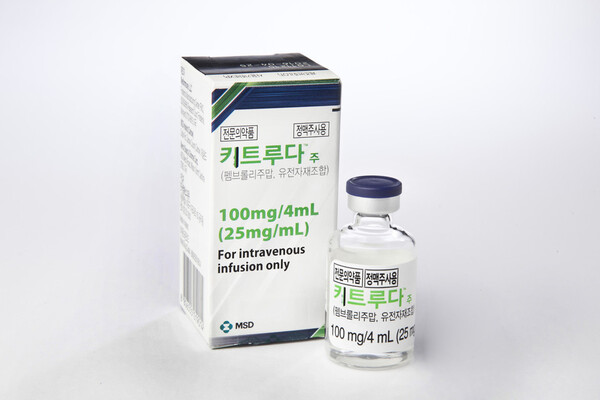MSD Korea's application for a bulk reimbursement expansion for 13 indications of Keytruda (pembrolizumab) has been rejected at the first threshold.
On Wednesday, the Health Insurance Review and Assessment Service (HIRA) released the results of its deliberations on the reimbursement standards for drugs used for cancer patients during the seventh Cancer Disease Review Committee.

In June, MSD Korea applied for an expanded insurance coverage review for Keytruda, targeting 13 indications with high demand in Korea's cancer treatment field.
The 13 indications requested were early-stage triple-negative breast cancer; advanced or recurrent triple-negative breast cancer; advanced or recurrent head and neck cancer; advanced or metastatic esophageal cancer; adjuvant therapy after surgery for renal cell carcinoma; non-muscle invasive bladder cancer; and persistent, recurrent or metastatic cervical cancer; advanced endometrial cancer; metastatic endometrial cancer with MSI-H or dMMR; inoperable or metastatic colorectal cancer with MSI-H or dMMR; metastatic small bowel cancer with MSI-H or dMMR; metastatic ovarian cancer with MSI-H or dMMR; and metastatic pancreatic cancer with MSI-H or dMMR.
Among them, the cancer review panel only put the indications for esophageal, endometrial, and colorectal cancer on the agenda for discussion, and even then, it decided to “re-discuss” them.
"Regarding these 13 indications applied for coverage expansion, we first reviewed the medical feasibility and medical necessity of each indication, received the financial sharing proposal of the pharmaceutical company for the total finance of the proven indication, analyzed the impact, and decided to discuss whether to set the salary standard," HIRA said.
Conversely, it set reimbursement standards for Kyowa Kirin Korea's Poteligeo (mogamulizumab) and Pfizer Korea's Mylotarg (gemtuzumab ozogamicin), both of which were on the agenda for new coverage.
Poteligeo, which was approved by the Ministry of Food and Drug Safety in September last year to treat "mycosis fungoides or Sjögren's syndrome in patients who have received one or more prior systemic therapies," passed the reimbursement gateway one year after the approval.
Mylotarg, approved for "first-line treatment of CD33-positive acute myeloid leukemia (AML)," also crossed the cancer panel’s threshold two years after the ministry’s nod.
Pfizer Korea applied for reimbursement concurrently with Mylotarg's approval, and the drug was added to the cancer review panel's agenda in May of last year. However, the company faced initial reimbursement rejection. Subsequently, Mylotarg reappeared on the agenda during the fifth cancer review meeting, receiving a "rediscussing" decision, and has now cleared the initial hurdle.
In contrast, Handok's Pemazyre (penigatinib), which was also on the agenda, was deferred. Pemazyre is a targeted antineoplastic drug approved by the ministry in April to treat patients with locally advanced or metastatic cholangiocarcinoma with FGFR2 fusion or rearrangement who have received one or more systemic therapies, but it received a “rediscussing” decision in this cancer review.
Lastly, the FOLFIRINOX (oxaliplatin/irinotecan/leucovorin/5-FU) regimen, a type of chemotherapy, has got reimbursement standards as upfront chemotherapy for patients with resectable borderline pancreatic cancer.

